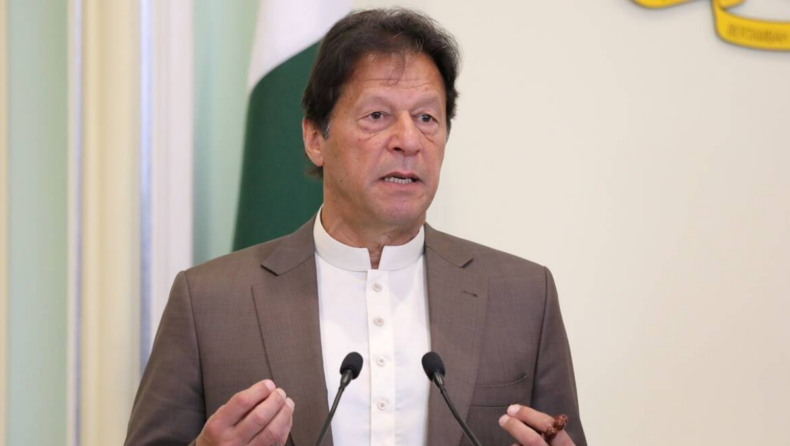Pakistan’s ailing Prime Minister Imran Khan struck back by receiving presidential approval for the dissolution of Parliament, a move denounced by the Opposition as “unconstitutional” on Sunday. The latter has filed a petition with the Supreme Court to overturn the ruling.
The de-notification comes only hours after now-former Deputy Speaker Qasim Suri abruptly denounced the no-confidence motion as “unconstitutional,” claiming that it was sponsored by “foreign powers.”
On the advice of the ex-Premier, President Arif Alvi dissolved the National Assembly after the no-confidence motion was dismissed.
Following the dismissal of the no-confidence vote in the National Assembly, the Pakistan Supreme Court held a hearing on its own motion on the subject later on Sunday, prohibiting all state institutions from pursuing any “extra-constitutional” actions. The case was tried by a three-judge panel led by Pakistan’s Chief Justice, Justice Umar Ata Bandial.
However, under Article 224 of the Pakistani Constitution, he can stay on as Prime Minister for another 15 days until a caretaker Prime Minister is appointed.
Khan, speaking to the nation following the defeat of a no-confidence motion in Parliament, also called for new elections.
“I urge the people of Pakistan to get ready for the elections. There will be no corrupt powers deciding the country’s future. The procedure for the next elections and the caretaker administration would begin once the assemblies are dissolved, Khan stated. Farrukh Habib, Minister of State for Information and Broadcasting, has stated that elections will take place within 90 days.
Khan would be tried with treason for breaking the constitution, according to Shehbaz Sharif. It’s a well-trodden path in Pakistan, where former military chief and president Pervez Musharraf was charged with high treason and condemned to death (he lives in Dubai and has managed to escape the verdict handed down in 2019 that sentenced him to death.)
Due to assassinations, martial law, no-confidence votes, and arbitrary dismissals, no Pakistani leader has ever served a full term in office. Khan’s term, which started in August 2018, is set to end in August 2024. He would have joined the lengthy history of unsuccessful prime ministers and presidents if the trust vote had gone ahead. It’s very likely that he is.
Recommendations flowing in for caretaker PM
According to a report by Geo News, the president has also asked Imran Khan and Shehbaz Sharif, the Leader of the Opposition in the National Assembly (NA), for their input on the nomination of a temporary Prime Minister.
If both sides are unable to reach an agreement within three days, they can each nominate two people to the eight-member parliamentarian committee that will make the appointment.
According to Minister Fawad Chaudhry, quoted by Pakistan’s ARY News, Imran Khan has already sent two candidates to President Alvi for the job of interim Prime Minister. He further stated that if the unified opposition is unable to finalize proposals within seven days, the top candidate from the PTI’s list of nominees will be appointed caretaker prime minister.
Published By: Manan Khurana
Edited by: Khushi Thakur













